HealthCert 365
on-demand learning
Access 400+ short modules drawn from HealthCert's university-assured Certificate Courses. Sample, refresh, or build skills in what matters to your practice.
Try FREE for 7 days.
Then join for AUD995 per year.

JOIN BY 28 FEBRUARY 2023 TO SAVE $200 ON YOUR ANNUAL FEE
HealthCert 365 on-demand learning
HealthCert 365 gives you access to 400+ short modules drawn from our university-assured CPD Certificate Courses. Every major topic area is covered, so you can sample, refresh, or build skills without committing to a single program, giving you the flexibility to explore broadly or focus deeply on what matters to your practice.
Explore all modules available within HealthCert 365
Click to expand each topic or download a pdf guide below.
Please note: As HealthCert Education offers various course levels, some advanced courses will have recommended prerequisites.
Do you need Outcome Measurement CPD hours?
Get access to a range of Plan-Do-Study-Act (PDSA) activities covering various special interest fields and each qualifying for 10 Outcome Measurement hours to help you tick off your annual CPD requirements.
Skin Cancer Medicine
- Foundations of skin cancer medicine
- An approach to pigmented skin lesions
- An approach non-pigmented skin lesions
- Dermatopathology
- Topical treatment and medico-legal issues
- Preparation for surgical treatment
- Suturing and perfecting the ellipse
- Local anaesthesia for skin cancer medicine
- Curettage and cautery for skin cancer medicine
- Ellipse planning
- Chaos and Clues
- The big three: BCC, SCC and melanoma
- Topical treatments and lesion-directed treatments
- Field treatments for skin cancer medicine
- Chemoprevention in skin cancer medicine
- Factors influencing the choice of treatment in skin cancer medicine
- Skin Cancer business management
- Plan-Do-Study-Act for Elllipse
- Plan-Do-Study-Act for Halo graft
Skin Cancer Surgery
- Theory, anatomy and principles of surgery
- Suturing and perfecting the ellipse plus local anaesthetic
- Skin grafting
- Pivotal flaps
- Rhomboid flaps 1
- Advancement flaps 1
- Ellipses and suture techniques
- Advancement flaps 2
- Rotation flaps
- Grafts
- Rhomboid flaps 2
- Banner flaps 1
- Neurovascular island flaps
- Bilobed flaps
- Banner and rhomboid flaps
- V-Y flaps
- Understanding the application of skin cancer surgery in the clinical setting
- Plan-Do-Study-Act for Pivotal, rhombus or advancement flaps
- Plan-Do-Study-Act for Rotation or banner flap technique
Dermoscopy
- Algorithms and the Elephant Approach
- Chaos and clues method
- Benign non-melanocytic lesions
- Malignant non-melanocytic lesions
- Dermoscopy for melanocytic naevi
- Dermoscopy for melanoma
- Dermoscopy for mucosal lesions
- Dermoscopy for difficult benign lesions (including naevi with special features)
- Dermoscopy for nail lesions
- Broad spectrum of BCC & keratinocyte skin cancer
- Dermoscopy for difficult melanomas
- Dermoscopy in general dermatology
- Dermoscopy for screening children
- Dermoscopy for screening young adults
- Dermoscopy for screening older patients
- Lesions in different skin types (dark, fair, sun damaged)
- Artificial and human intelligence in dermoscopy
- Dermoscopic methods to apply when pattern recognition fails
- Plan-Do-Study-Act for Diagnosing melanoma
- Plan-Do-Study-Act for Using dermoscopy for general dermatology conditions
Dermoscopy for Dermatology
- Basic principles of applying dermoscopy in general dermatology
- Common inflammatory dermatoses of the face and trunk
- Disorders of pigmentation, infiltrative dermatoses and uncommon skin diseases
- Viral, bacterial, fungal and parasitic infections
- Basic principles of trichoscopy
- Trichoscopy of common alopecias
Histopathology for Dermoscopy
- Welcome and introduction to dermatopathology correlation cases
- Non-melanocytic lesions part 1
- Non-melanocytic lesions part 2
- Virtual slides dysplastic naevus: fact and fiction
- Specimen processing: Does the type of biopsy make a difference? Correlation cases
- Histopathology of melanocytic lesions part 1
Dermoscopy Masterclasses
- Dermoscopy Excellence program presented by Professors Giuseppe Argenziano and Aimilios Lallas
- Understanding and application of dermoscopy in clinical practice presented by Professor Harald Kittler together with Professor Cliff Rosendahl, Associate Professor John Pyne and Dr Simon Clark
Clinical Nutrition
- Australian and international dietary guidelines: how to use these to guide treatment
- Busting common nutrition myths and fads: superfoods, paleo, organic and other popular diets
- Pregnancy: complete nutrition guide for fertility, pregnancy and lactation
- Childhood nutrition
- Gut microbiome: pre and probiotic treatments
- Malnutrition in the older adult
- Chronic disease and diets: med, mind, veg, high protein, low GI
- Patient centred weight management: non-diet approach
- Eating disorders including anorexia and bulimia
- Nutrition in gastrointestinal health
- Motivational behaviour change
- Are carbs the enemy? Understanding nutritional needs for patients with diabetes
- Nutrition in chronic kidney disease
Men's Health
- Prostate conditions and prostate check
- Sexually transmitted infections in men
- Men's cases: Lifestyle choices and the impact on health and wellbeing
- Male sexual dysfunction
- Fitness and exercise in older men
- Male anatomy and clinical problems 1
- Penile conditions and fertility check
- Male hair loss and genital inflammatory dermatoses
- Androgen deficiency
- Cardiovascular health and weight control in men
- Male anatomy and clinical problems 2
- Men's cases: Disease prevention, suicide risk and the GP role
- Obstructive sleep apnoea in men
- Managing male patients with HIV
- Gout in men
- Tobacco related conditions
- Plan-Do-Study-Act for Age appropriate men’s health check-ups
- Plan-Do-Study-Act for Identifying non-alcoholic fatty liver disease
Women's Health
- Sexually transmitted infections and cervical screening
- Polycystic Ovarian Syndrome (PCOS)
- Pregnancy 1
- Menopause
- Women's health - Family planning 1
- Domestic abuse
- Endometriosis, pelvic pain and ovarian cancer
- Women's health - Sexual health
- Women's health - Infertility
- Pregnancy complications
- Breast health - Risk, detection and management
- Post menopause health issues
- Vaginal prolapse and urinary incontinence
- Complementary medicine in women's health
- Familial risk of breast and ovarian cancers
- Premature ovarian insufficiency
- From acne inversa to common menopausal problems: Women's health issues
- Plan-Do-Study-Act for Women’s health check-ups that are age appropriate
- Plan-Do-Study-Act for Sexually transmitted infections
Geriatric Medicine
- Diagnosing dementia
- Falls in the elderly
- Polypharmacy and how to manage it
- Osteoporosis
- Palliative care – the essentials
- Nutrition in the elderly
- Stroke and TIAs
- Parkinson’s Disease
- Palliative care – advanced
- Common cancers in the elderly
- Macular degeneration, cataracts and other causes of visual impairment
- Managing chronic, non-cancer pain
- COPD
- Prostate conditions and prostate check
- Post menopause health issues
- Atrial fibrillation
- Coronary artery disease
- Plan-do-study-act for food diary
- Plan-do-study-act for monitoring lipid levels
Sexual & Reproductive Health
- Menstrual problems
- Endometriosis, pelvic pain, ovarian cancer
- Family planning 1
- Polycystic Ovarian Syndrome (PCOS)
- Vaginal prolapse and urinary incontinence
- Familial risk of breast and ovarian cancer
- STIs and cervical screening
- Sexual health in women
- Premature ovarian insufficiency
- Infertility in women
- Pregnancy
- Pregnancy complications
- Menopause
- Post menopause
- Prostate conditions and prostate check
- Penile conditions and fertility check
- STIs in men
- Androgen deficiency
- Male sexual dysfunction
- Male anatomy and clinical problems 1
- Male anatomy and clinical problems 2
- Plan-do-study-act for Women’s health check-ups that are age appropriate
- Plan-do-study-act for Sexually transmitted infections
Chronic Disease & Conditions
- Communication skills in general practice
- Chronic obstructive pulmonary disease (COPD)
- Diabetes mellitus
- Gastrointestinal complaints
- Chronic kidney disease
- Osteoarthritis
- Hypertension (prevention and Rx)
- Coronary artery disease (IHD)
- Tobacco related conditions
- Obesity and women’s health
- Polycystic Ovarian Syndrome (PCOS)
- Prostate conditions and prostate check
- Thyroid conditions
- Asthma
- Osteoporosis
- Managing long-term childhood conditions in general practice
- Autism spectrum disorders
- Plan-do-study-act for Chronic kidney disease
- Plan-do-study-act for Renal function
General Dermatology
- Common benign conditions; pigmentary conditions; cutaneous infections
- Facial rashes; systemic diseases; fungal infections
- Atopic dermatitis; acne 1
- Dermatopathology, pruritus, contact dermatitis
- Nail disorders; hair loss
- Paediatric topics; follicular disorders; blistering disorders
- Dermatological emergencies; vitiligo treatments; infestations
- Treatment of dermatomyositis; treatment of sarcoidosis
- Systemic treatment options for psoriasis; systemic treatment of lichen planus
- Atopic dermatitis; acne 2
- Patch testing; contact dermatitis; cutaneous lymphomas
- Rare nail disorders; cicatricial alopecia
- Bites: snakes and insects
- Skin ulcers; pressure sores; wound care
- Pregnancy dermatoses
- Oral mucosal diseases
- Hidradenitis suppurativa diagnosis and treatment
- Plan-Do-Study-Act for The diagnosis of skin rashes
- Plan-Do-Study-Act for The ‘Teach back’ tool for acne or contact dermatitis
Aesthetic Medicine
- Introduction to aesthetic medicine
- Office based treatments for aesthetic medicine patients
- Introduction to chemical peels
- Facial anatomy and planning safe treatments
- Introduction to Botulinum toxin
- Introduction to dermal fillers and filler rheology
- Introduction to dermal filler techniques
- Skin aging principles
- Complications including relevant anatomy in aesthetic medicine
- Advanced chemical peels and cosmeceuticals
- Advanced Botulinum toxin and hyperhidrosis
- Advanced dermal fillers
- Introduction to facial threadlifts
- Ultrasound and radio frequency treatment
- Common modalities for non-surgical body shaping
- Acne and rosacea
- Global trends and aesthetic medicine developments
- Plan-Do-Study-Act for Chemical peels, dermal fillers or Botulinum toxin
- Plan-Do-Study-Act for Dermal fillers and Botulinum toxin
Clinical Procedures
- Principles of wound healing and managing small procedures in general practice
- Closing the wound
- Lacerations and wounds
- Foreign bodies and healing by second intention
- Lumps and bumps
- Managing infected lesions
Musculoskeletal & Sports Medicine
- Musculoskeletal pain
- Rheumatoid arthritis
- Neck injuries in sport
- Physical and biomechanical assessment of lower limb and gait problems
- Degenerative joint diseases
- Low back pain
- Osteoporosis
- Gout
- Physical assessment and management of shoulder problems and sports injuries
- Elbow, wrist and hand problems
- Physical management for knee, ankle and foot problems and sports injuries
- Health and performance factors in masters athletes
- Nutrition for sport and musculoskeletal health
- Children's health: sport and exercise
- GP cases: managing the weekend sports person
- Legal and illegal drugs in sport
- Plan-Do-Study-Act for The 'Teach back' tool for neck pain, low back pain or rheumatoid arthritis
- Plan-Do-Study-Act for The 'Teach back' tool for knee, elbow, hand, wrist, ankle or foot pain
Mental Health
- Detection, assessment and review of mental health issues
- Depression (general)
- Anxiety
- Bipolar disorder
- Post traumatic stress syndrome
- Domestic abuse
- Communication skills in general practice
- Autism Spectrum Disorder
- Attention Deficit Disorder
- Management of S4 medications: General and mental health
- Delusions
- Emergency mental health
- Plan-Do-Study-Act for Depression, anxiety, PTSD or bipolar disorder
Medicinal Cannabis
- History of Medicinal Cannabis
- Introduction to the endocannabinoid system
- The major phytocannabinoids: THC and CBD
- Medicinal Cannabis – Routes of administration, side effects and contra indications
- Medicinal Cannabis – Patient cases and basic ailments
- Medicinal Cannabis and chronic pain
- Medicinal Cannabis – Anxiety, insomnia and depression
- Medicinal Cannabis – Multiple sclerosis, spasticity, tremor, dystonia
- Medicinal Cannabis – Treatment resistant pain, neuropathic pain, cluster headaches and migraines
- Medicinal Cannabis – Auto immune disorders and inflammatory conditions
- Medicinal Cannabis – Inflammatory bowel disease – Crohn’s disease and ulcerative colitis
- Medicinal Cannabis – ASD– Autism, ADHD, OCD, Tourettes
- Medicinal Cannabis – Women’s health and endometriosis, PMS, osteoporosis
- Medicinal Cannabis – Geriatric and palliative medicine
- Medicinal Cannabis – Epilepsy: adult and child
- Medicinal Cannabis – PTSD: treatment in clinical practice
- Medicinal Cannabis – Plan–Do–Study–Act for ‘Insomnia’ and ‘Headaches and migraines’
Respiratory Conditions & Infections
- Asthma
- Chronic Obstructive Pulmonary Disease (COPD)
- Sinusitis
Domestic Abuse & Violence
- Child physical abuse and neglect
- Child sexual abuse
- Domestic abuse
Allergy Medicine
- Anaphylaxis: Causes, symptoms, and emergency treatment
- Food allergies: Peanut, tree nut, seeds, seafood, cow’s milk, hen’s eggs
- Allergic rhinitis, allergic conjunctivitis, and desensitisation
Cardiovascular Medicine
- Atrial fibrillation
- Coronary artery disease
- Cardiovascular health and weight control in men
Child & Adolescent Health
- Assessment of the sick child
- Asthma and respiratory conditions
- Attention Deficit Hyperactive Disorder
- Autism Spectrum Disorder
- Bites: Animals, snakes and insects
- Managing long term childhood conditions
- Anaphylaxis – causes, symptoms, emergency treatment
- Food Allergies: Peanut, tree nut, seed and seafood, cow’s milk and hen’s eggs
- Allergic rhinitis, allergic conjunctivitis and desensitisation
- Dermatology concerns in children, including blistering
- Child Abuse and Neglect
- Child sexual abuse
- Atopic dermatitis and acne 1
- Atopic dermatitis and acne 2
- Tobacco conditions
- Depression (general)
- Eating disorders
Immunisation & Vaccination
- Adult vaccination
- Travel vaccination schedules
View all HealthCert 365 modules at one glance.

Upskill easily
Access 2,000+ hours of accredited activities and acquire critical skills to improve patient outcomes.
- Medical video lectures
- Demonstrations of procedures
- Case discussions
- Clinical audits & more
Study what you like, when you like
Access all of HealthCert’s university-assured course content at an annual flat fee and upskill in high-demand areas of primary care.
- Skin cancer
- Dermoscopy
- General dermatology
- Aesthetic medicine
- Geriatric medicine
- Men's & women's health
- Musculoskeletal & sports medicine
- Clinical nutrition
- Chronic disease & conditions
- Respiratory conditions & infections
- Mental health
- Immunisation & vaccination
- Domestic abuse & violence
- Sexual health and more!
CPD made easy
Easy to use
Log into your HealthCert 365 account anytime and navigate through an easy-to-use platform, including tutorials and templates to help you.- Learn at your own pace and pick up where you left off on any device.
- Easy to use drag-and-drop interface with progress bar to help you track your learning activities.
- Personal activity dashboard.
- Clearly labelled activities that can be filtered according to study duration, topic, learning outcomes, and more.
- Automated progress reports & reminders.
Combine theory with practice
Upgrade your learning experience anytime through the add-on of a practical workshop for an additional fee.
- Small-group workshops
- Available across Australia
- Hands-on experience under expert guidance
.webp)
Featured learning and CPD activity types via HealthCert 365
Featured learning and medical lectures
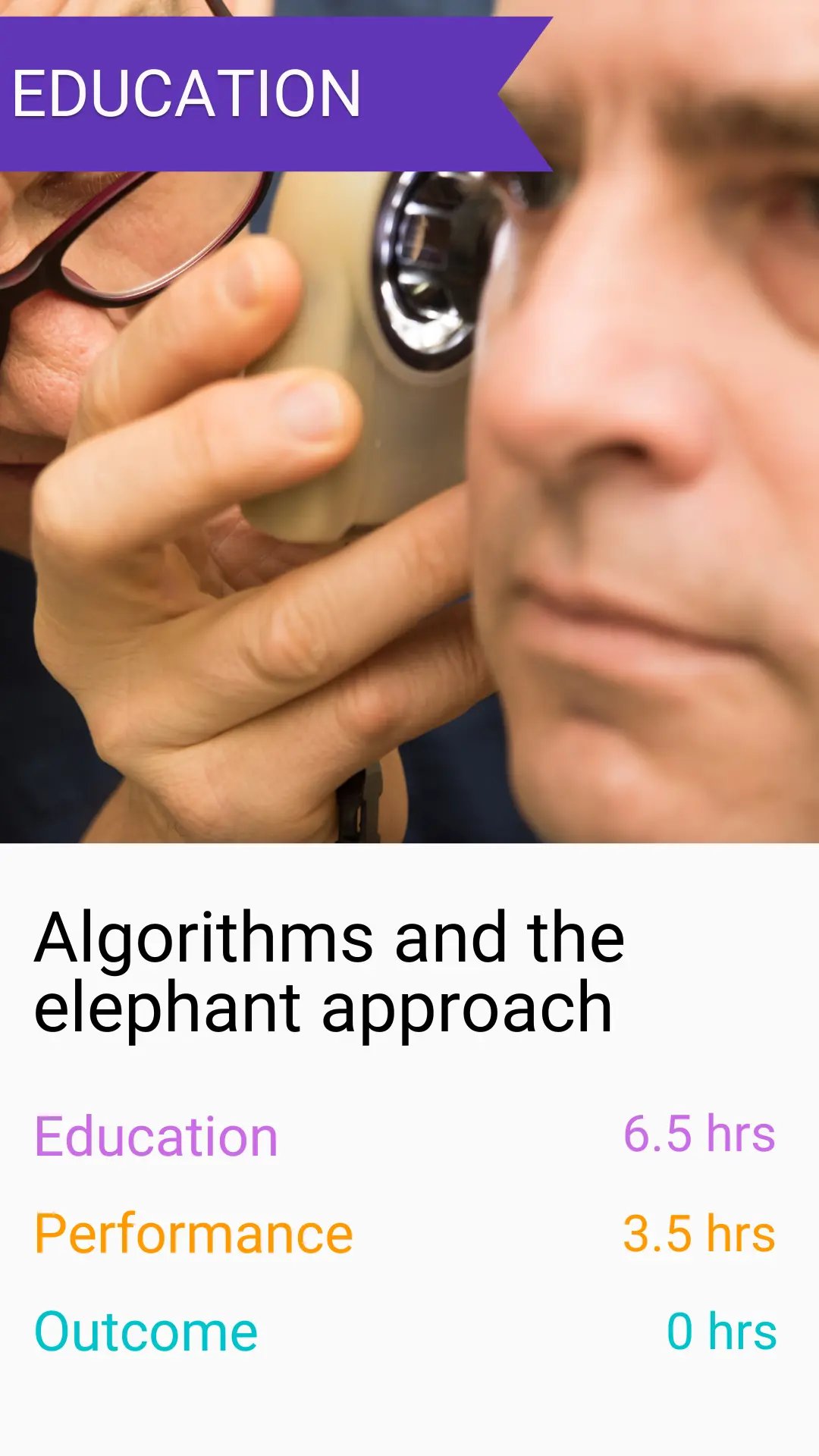
...
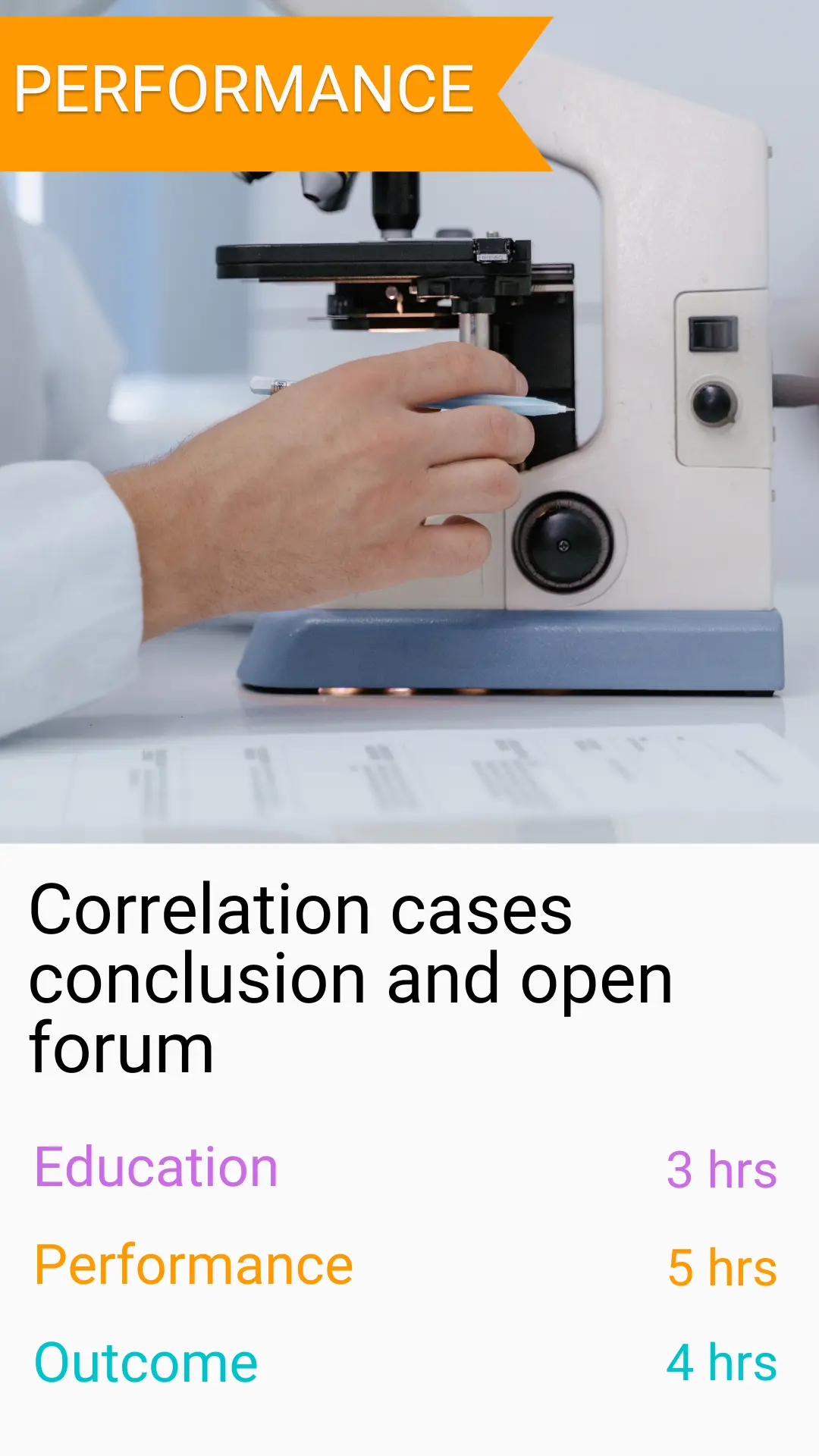
...
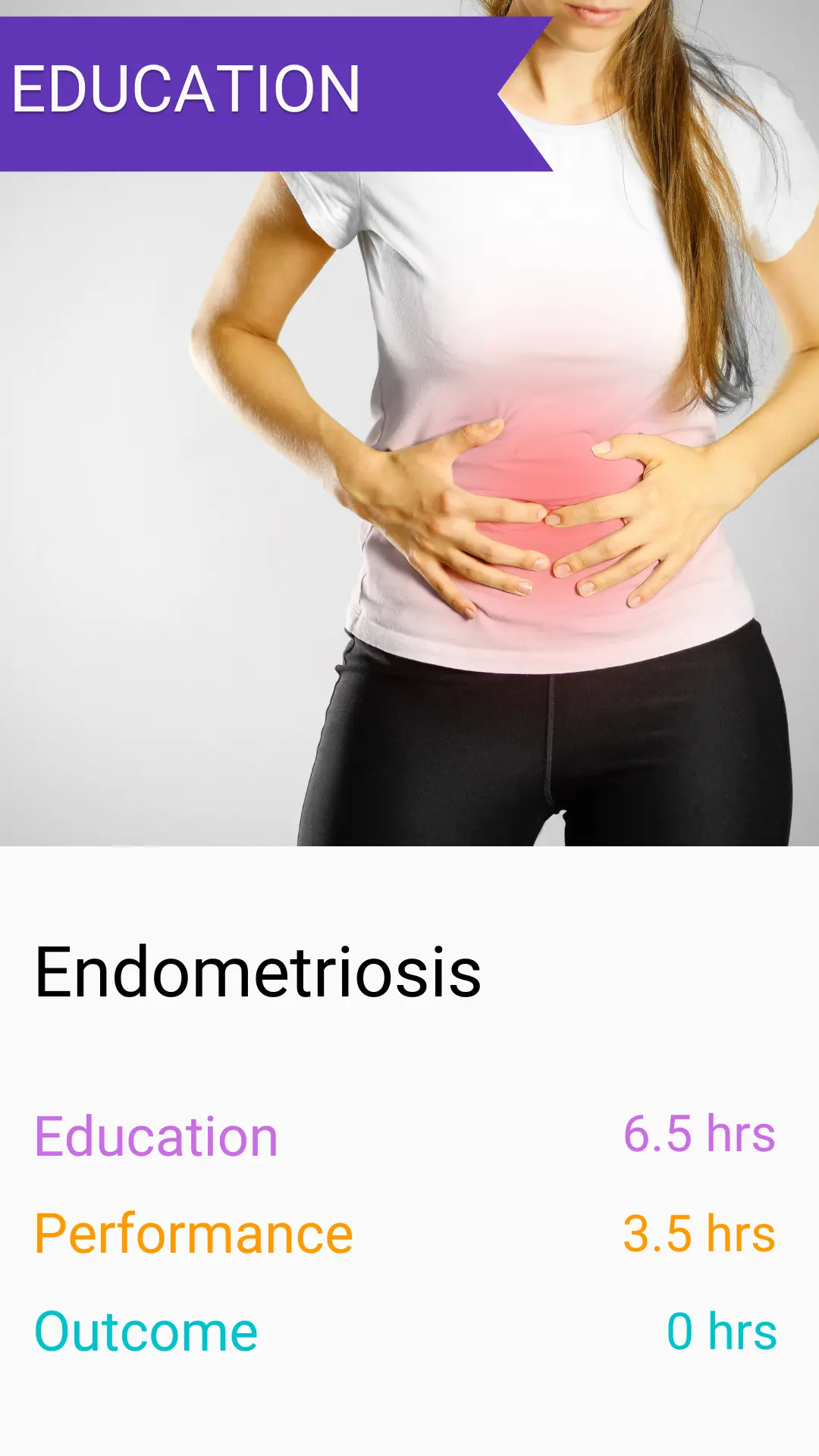
...
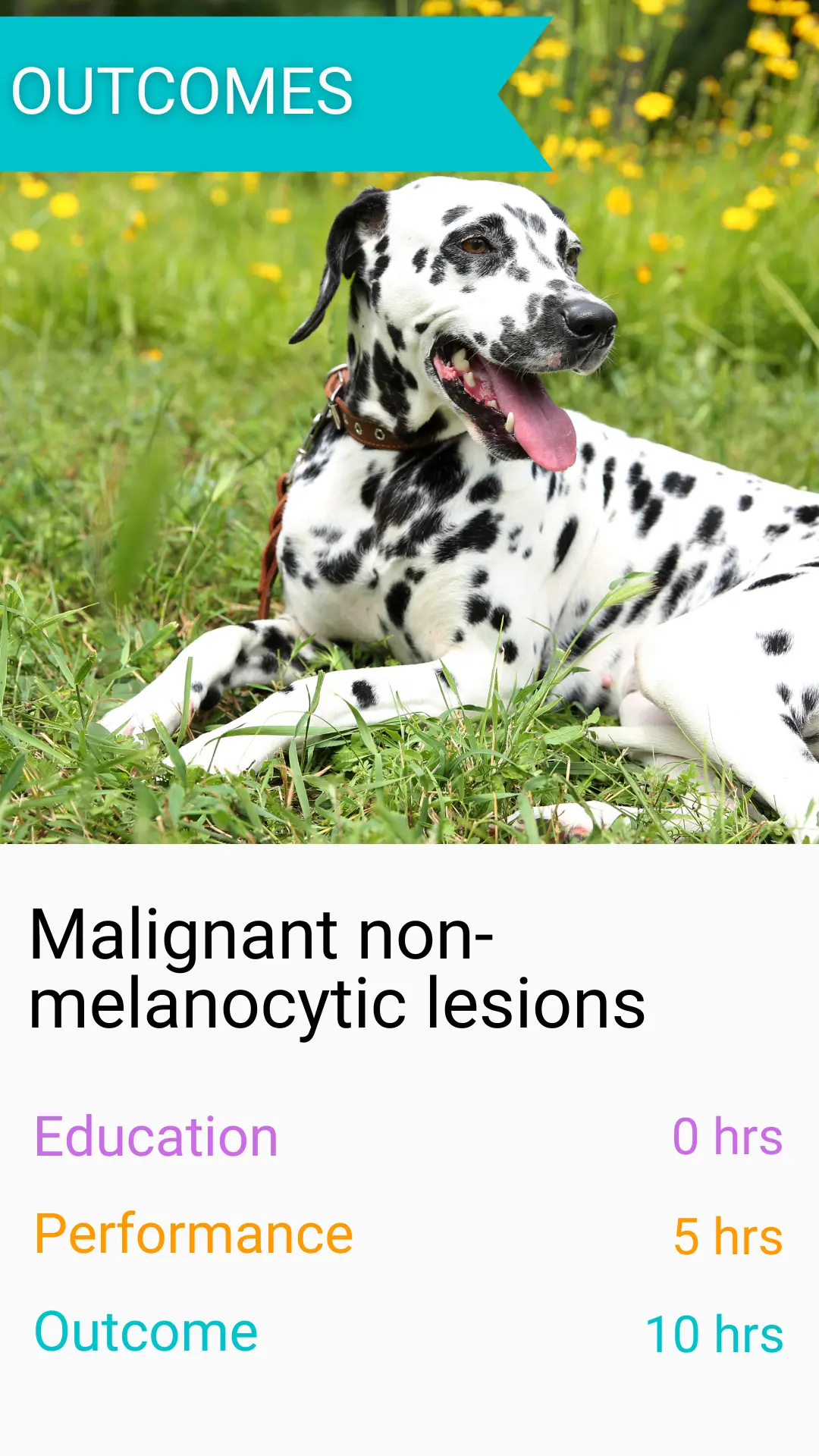
...
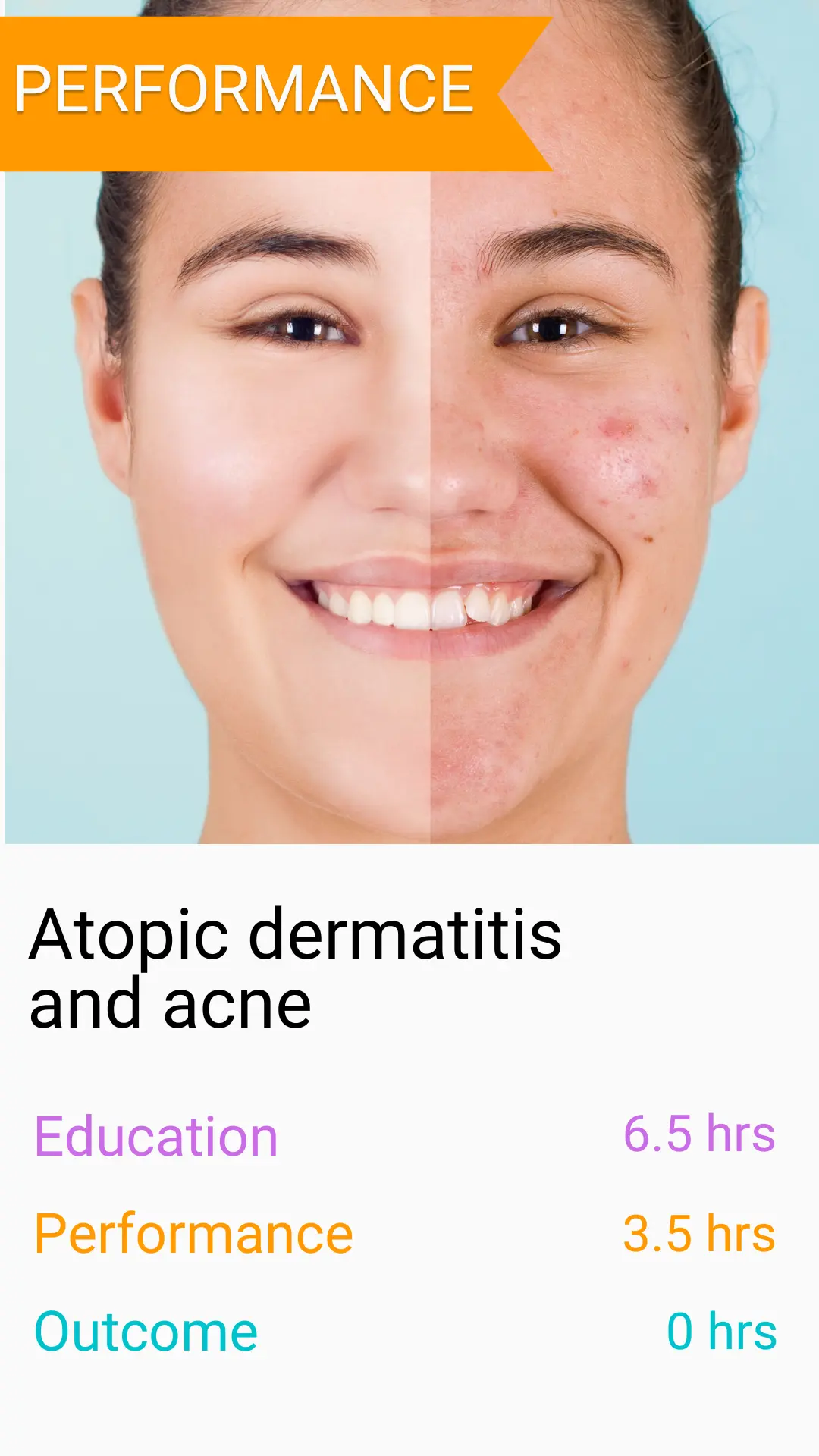
...
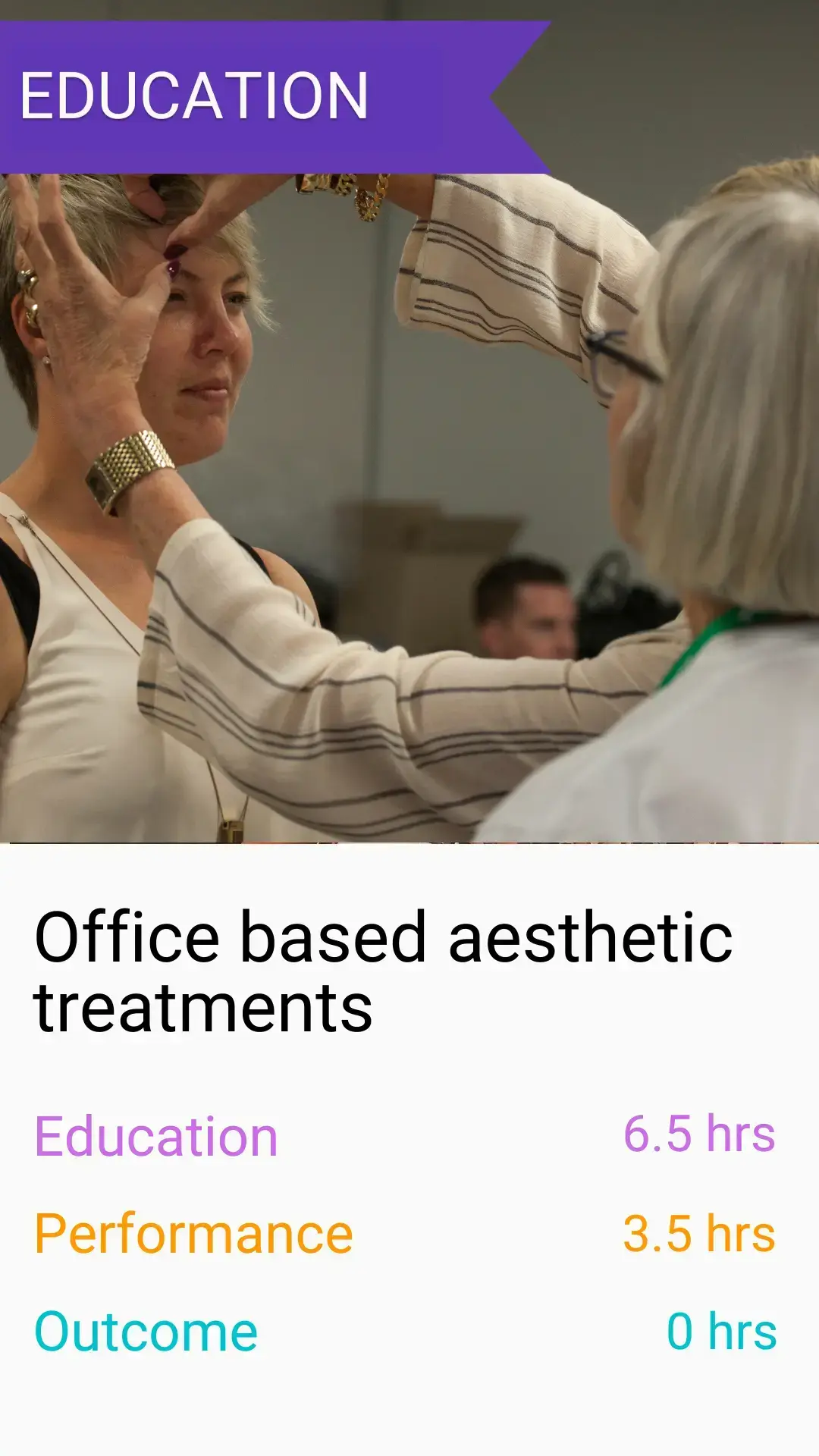
...
Easy to use
Use an easy-to-navigate drag-and-drop interface to build your own professional development program and complete all online modules at your own pace.

Personalised learning
• Create your own mix of CPD activities from a video library of 200 short learning modules.
• Select a curated 50-hour CPD program on one specific topic to hone your knowledge in this medical area.
University-assured content
Upskill with Australia’s only university-assured medical education provider and receive a digital badge upon completion of each learning module. Grow your practice and set yourself apart in the medical community.
What sets HealthCert 365 apart from a HealthCert Education certificate or professional diploma?
| HealthCert 365 | HealthCert Education certificate or professional diploma |
^ paid annually. |
* provided an outcome measurement activity with a minimum of 5 hours is completed. |
Is HealthCert 365 accredited?
Yes, it is easy to meet the minimum 50 hours CPD annual requirement across all three mandatory CPD activity types with HealthCert 365.
Each module clearly outlines the Education, Performance and Outcome hours it provides. Create your own mix of CPD activities from a video library of 200 short learning modules or select a curated 50-hour CPD program on one specific topic to hone your knowledge in this medical area.
All HealthCert 365 modules qualify for CPD hours from the Royal Australian College of General Practitioners (RACGP).
Contact us for more information.
Do I need to pass an English literacy test to complete a HealthCert course?
HealthCert does not set an English proficiency level as an entry requirement into our courses. You do not have to pass an International English Language Testing System (IELTS) test. However, the courses are delivered in English and it would be expected that you should have sufficient proficiency in listening, reading and writing in the English language.
How do I know which course is most suitable for me?
Our courses cater to medical professionals with ranging levels of expertise and interests, and offer complete learning pathways from foundation knowledge to focused expertise.
What does education activity, performance review, and outcome measurement mean?
This only applies to doctors practising in Australia.
- Educational activities are designed to expand your knowledge and skills. They're the common sort of CPD that you might think of.
- Performance review activities require reflection and feedback about your work.
- Measuring outcome activities use work data to ensure quality results.
What is the difference between skin cancer medicine and skin cancer surgery?
Skin cancer medicine is designed to teach how to diagnose and treat skin cancer. Thus, it will include how to perform a skin examination with the use of Dermoscopy. It will also teach how to surgically treat skin cancer along with other modalities like cryotherapy, cautery, and topical therapies. Finally, it will help provide a management pathway when malignant lesions are found.
Skin cancer surgery focuses solely on the surgical management of skin cancer. There is no training in the diagnosis of skin cancer and melanoma. It assumes a level of prior training and experience, such that doctors are comfortable to perform biopsies and elliptical excisions and techniques like buried sutures. It would be expected that a doctor has performed about 50 excisions with primary closure. This pathway will teach the more advanced techniques of flaps and grafts and then look at how they can best be applied to the head and neck and other challenging areas for a good cosmetic outcome.
The best pathway for you will depend on your learning and career goals. We would normally recommend that doctors study skin cancer medicine before progressing to skin cancer surgery.
Should you need clarification as to which option will help you to meet your learning goals, please contact a HealthCert Education Advisor.
What certification is provided?
Upon successful completion of each education activity, you will be issued with a digital badge to certify your learning. You can share this credential on your professional and social networks in a few clicks and download and print it for display in your office. Your digital badge is a recognition of your achievement, and badges can be accumulated to illustrate skill development as you master additional concepts.
How can I get access to my 365 login details which I have forgotten?
To log into the HealthCert e-Learning platform, visit https://learn.healthcert.com/ and log in by entering your username and password.
If you are unable to log in, please click “Forgot password” to create a new password.
If your password reset email is not immediately sent through to your preferred email address, please check your spam or junk folder in the first instance. If it has not been sent there please ensure you are requesting the new password with the email address originally provided on your registration.
If you are still experiencing difficulties please email admin@healthcert.com for additional support and investigation.
HealthCert 365 terms and conditions
- Scope and use of HealthCert 365
The subscription grants the Customer (being the legal entity that has taken out the subscription) the right to use the HealthCert 365 Service (“the Services”). The subscription may not be used by other people or organizations.
- Duration and termination of the HealthCert 365 subscription
The annual subscription runs from the date the 7-day free trial ends. For example, if the free trial is started on 1st January, the paid subscription will commence on 7th January. At the end of the 12-month period (annual subscription), the subscription will automatically be renewed for another 12-months unless terminated by the Customer in writing. The minimum subscription period is 12 months.
The annual subscription may be terminated by email to admin@healthcert.com one month before the expiry of the subscription. The agreement cannot be terminated for a period of subscription already initiated and the Customer will not be entitled to a refund for that subscription period.
The Customer may terminate any subscription free of charge within the 7-day trial period however will not have any related CPD activity recognised. HealthCert 365 shall (without prejudice to any other rights or remedies it may have) be allowed to terminate the subscription immediately without giving the Customer prior notice if the Services or subscription is misused (including, but not limited to, use by other people or organisations).
- Alternative to subscription
HealthCert 365 offers a range of alternative methods to access the learning and content through a range of certificate and professional diploma courses as well as access to practical workshops.
- Price and payment terms
The charges are listed on the website. Upgrades to other options within the HealthCert suite of courses do not form part of the HealthCert 365 subscription. The first invoicing period begins from the date the Customer commences their annual subscription (after trial period) and will run for exactly 12-months. After that period, annual services are invoiced for the next period (annual). Credit card merchant fees are charged to the Customer.
If the subscription is not paid by the due date, a first reminder will be sent to the Customer. If the subscription remains unpaid ten days after the date of the first reminder, access to the Services will be denied until a remedy has been sought. HealthCert365 will not be responsible for any loss, damage, costs, expenses, or other claims of the Customer resulting from the suspension of the Services.
The Customer agrees to the use of e-mail (using an e-mail address specified by the Customer) or another electronic method of transmission as the medium for entering into a subscription agreement, sending invoices and reminders.
- Operating stability
HealthCert365 aims to provide the highest possible degree of operating stability but is not responsible for any breakdown caused by factors beyond its control. Such breakdown includes but is not limited to power failures, errors occurring in modem equipment, ADSL connections, telecommunications connections or the like. In all events, HealthCert365 aims to re-establish normal operations as quickly as possible.
- Maintenance of the System
HealthCert365 is entitled to make operational changes to the Service for improvements or otherwise (for example by developing or updating software) without giving the Customer prior notice. In some circumstances it may be necessary to suspend access to the Services, usually between 11pm and 6am AESDT. Notice of such a suspension will be given to the Customer in advance. HealthCert365 will not be responsible for any consequences of such a suspension where notice has been given.
- Rights
The System remains the full property of HealthCert365. HealthCert365 may at any time transfer its rights and obligations under this agreement to any economic affiliate, subsidiary, or business unit, or any of their affiliated companies or divisions. Except as provided above, the rights and obligations under this agreement may not be transferred to any third party without the written consent of the other party.
- Liability of HealthCert 365
HealthCert365 has taken reasonable measures to ensure that the Services are virus-free, but no warranty is given that the Services are free from infection from viruses etc., and HealthCert365 shall have no liability if this is not the case. To the extent permitted by law, HealthCert365 disclaims all warranties with respect to the Services, either express or implied, including but not limited to any implied warranties of suitability or fitness for any particular purpose.
- Privacy Policy and Confidentiality
Refer to HealthCert’s privacy policy at https://www.healthcert.com/privacy-policy
- Marketing
HealthCert365 shall be entitled to communicate with the Customer about important system updates and other pertinent information.
- Refunds
When cancelling an annual subscription, all future charges associated with future years of the subscription will be cancelled. The Customer may notify us of the intent to cancel at any time; the cancellation will become effective at the end of the current annual billing period.
The Customer will not receive a refund, prorated or otherwise, for the remainder of the annual term. However, the subscription access and/or delivery and accompanying subscriber benefits will continue for the remainder of the current annual billing period.
Try it free for 7 days
Why choose HealthCert 365
"I am a GP about to retire and have used the HealthCert 365 education package for two years. I was easily able to access courses that matched my needs, leaning towards my ageing patient population. I needed help initially as I was using an iPad rather than a computer. The HealthCert team readily responded and gave me the confidence to continue. I like the various modes of learning, including videos, slides, realistic cases, good reading matter, and plenty of appropriate references for further info. Altogether, I enjoyed manageable, varied, relevant material to help me complete my CPD. Thank you."
- Dr R. Worland
"All lectures were explained in depth and with great knowledge. Overall, this has been a good course with amazing presenters."
- Dr C. Pollard
"This is the pathway to improve your confidence and evolve into the GP you aspire to be."
- Dr S. Shinwari
"Brilliant presenters, very relevant topics and overall great course. It will have a practical application in my clinical practice."
- Dr S. Vig
Resources to make your CPD easy
Get in touch with us
Our Education Advisors can assist you with any queries and tailor our education pathway to suit your current expertise, interests and career goals.
Ask a question
© Copyright 2017-2024 HealthCert Education Pte Ltd. All Rights Reserved - Terms and Conditions - Privacy Policy


 1800 867 1390
1800 867 1390


